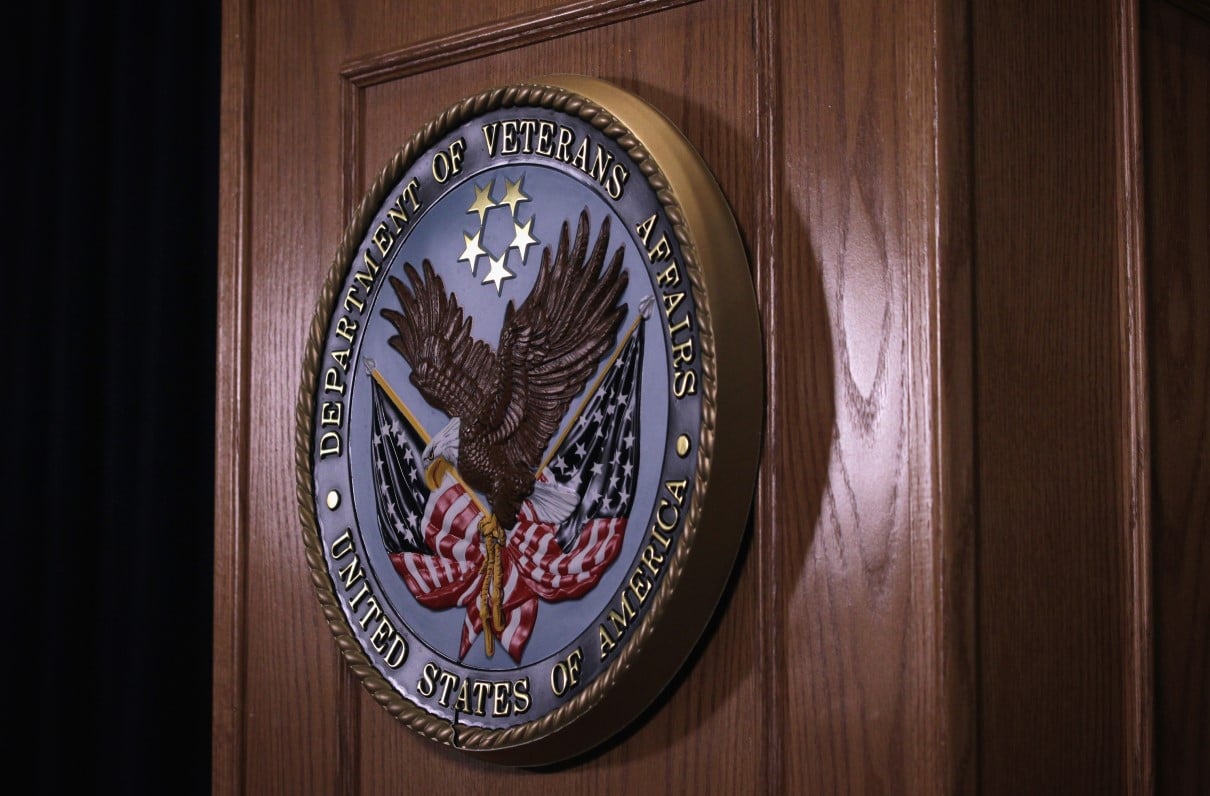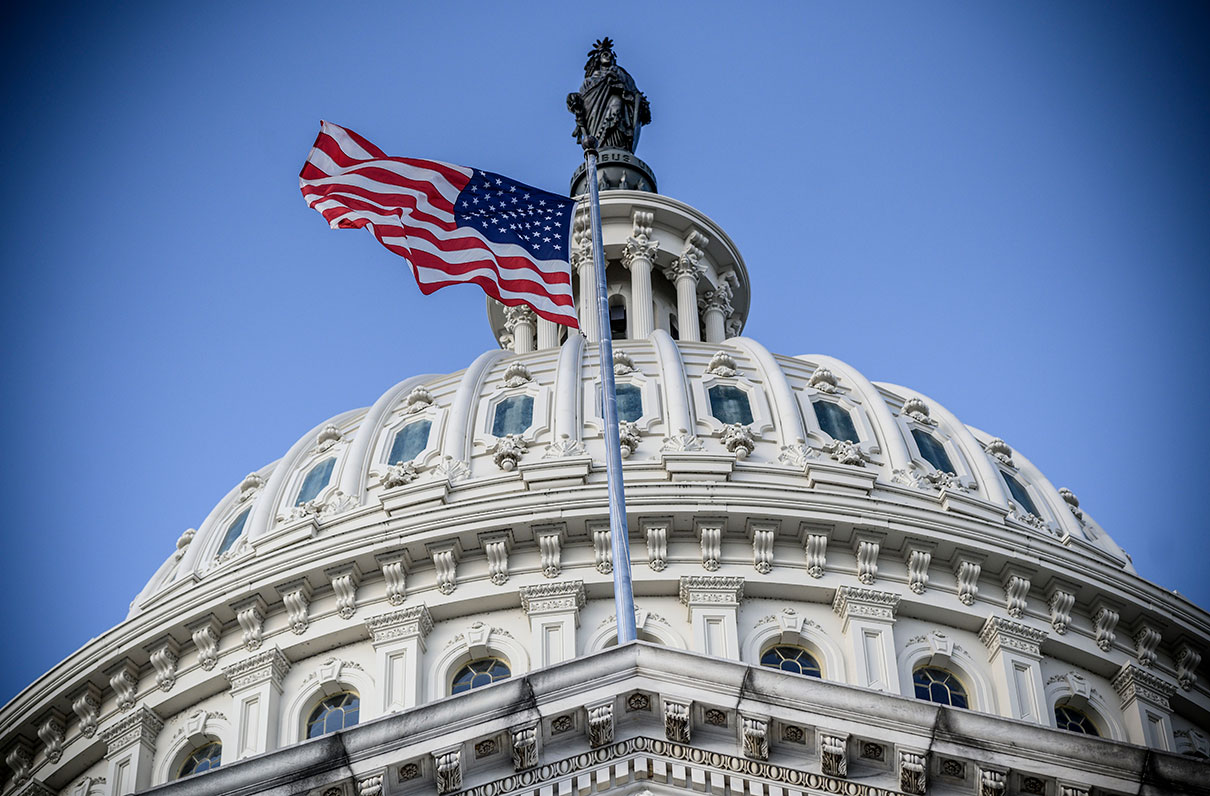By Cory Titus and René Campos
Congress put a bow on its final legislative package with only days left in 2020, championing a record number of bills representing hundreds of provisions, to provide economic and health care relief for veterans and their families.
Legislation signed into law Jan. 5 provides transitioning servicemembers and veterans, their family members, caregivers, and survivors some additional and unexpected benefits thanks to the hard work of Congress before the close of the 116th session.
The House and Senate veterans’ affairs committees recognized the difficulties and uncertainties placed on the uniformed services and veteran communities because of the COVID-19 pandemic. MOAA worked alongside the committees and our veterans service organization partners to ensure there was a little something in legislation that would improve the lives and well-being of everyone we represent.
Some bills have taken years (and several Congresses) to get across the finish line. Thanks to the unrelenting efforts of MOAA members, partners, veterans, and their families – answering calls to action and sharing our stories – we collectively were able to make 2020 a banner year for all those serving in and out of uniform.
So, what were some of the major wins for 2020 signed into law? Here’s a sampling, in chronological order:
- H.R. 2385, Veterans Legacy Program (Public Law No: 116-107, Jan. 17, 2020). Permits the VA to establish a grant program to conduct cemetery research and produce educational materials for the Veterans Legacy Program, which commemorates our nation's veterans through the discovery and sharing of their stories.
- S. 3503, Veterans Education Programs (Public Law No: 116-128, Mar. 21, 2020). Directs the VA to treat certain programs of education that have been converted to distance learning because of emergencies and health-related situations in the same manner as programs of education pursued at educational institutions.
- H.R. 748, Coronavirus Aid, Relief, and Economic Security (CARES) Act (Public Law No: 116-136, Mar. 27, 2020). Provides aid to address the COVID-19 national pandemic outbreak and its impact on the economy, public health, state and local governments, individuals, and businesses.
- H.R. 6322, Student Veterans Coronavirus Response Act of 2020 (Public Law No: 116-140, Apr. 28, 2020). Provides a variety of education programs and assistance for veterans during the covered period from March 1 to Dec. 21, 2020, as a result of the pandemic.
- H.R. 3504, Ryan Kules and Paul Benne Specialty Adaptive Housing Improvement Act of 2019 (Public Law No: 116-154, Aug. 8, 2020). Provides improvements to VA’s adaptive housing and educational assistance programs.
- H.R. 886, Veteran Treatment Court Coordination Action of 2019 (Public Law No: 116-153, Aug. 8, 2020). Establishes grants and technical assistance for state, local, and tribal governments to develop and maintain veterans’ treatment court programs to help veterans charged with nonviolent crimes receive the help and the benefits they need.
- S. 785, Commander John Scott Hannon Veterans Mental Health Care Improvement Act of 2019 (Public Law No: 116-171, Oct. 17, 2020). Improves mental health care and suicide prevention programs in the VA.
- H.R. 2372, Veterans’ Care Quality Transparency Act (Public Law No: 116-177, Oct. 20, 2020). Requires the comptroller general to assess the effectiveness of all agreements the VA has entered into, including non-VA organizations related to suicide prevention and mental health services.
- H.R. 1812, Vet Center Eligibility Expansion Act (Public Law No: 116-177, Oct. 20, 2020). Requires the VA to expand readjustment counseling and mental health services through its Vet Center Program.
- H.R. 2359, Whole Veteran Act (Public Law No: 116-185, Oct. 30, 2020). Requires the VA to submit a report to Congress on advancing its whole health initiative to transform the veterans’ health care system.
- S. 3587, VA Website Accessibility Act of 2019 (Public Law No: 116-213, Dec. 4, 2020). Requires VA to study and report on the VA website’s accessibility to individuals with disabilities.
- H.R. 8247, Veterans Comprehensive, Prevention, Access to Care, and Treatment (COMPACT) Act of 2020 (Public Law No: 116-214, Dec. 5, 2020). Enhances transition assistance services and suicide prevention programs, and improves care and services for women veterans.
- H.R. 7105, Johnny Isakson and David P. Roe, M.D. Veterans Health Care and Benefits Improvement Act of 2020 (Signed into law Jan. 5). Provides the VA more flexibility in caring for homeless veterans during a covered public health emergency and directs the agency to carry out a retraining assistance program for unemployed veterans, among other improvements.
- H.R. 8354, Servicemembers and Veterans Initiative Act of 2020 (Signed into law Jan. 5). Establishes the Servicemembers and Veterans Initiative within the Civil Rights Division of the Justice Department.
These new laws ushered in an array of new benefits in some critical areas:
COVID-19 Relief
- Hiring of new VA health care staff
- Increase in overtime pay, equipment, and supplies for health care workers
- Funding for care and services for homeless veterans
- Increase in telehealth services
- Stimulus payments, unemployment assistance, deferment of student loans, and other economic assistance
- Presumption of service connection for COVID-19 for servicemembers
- Oversight for State Veterans Homes regarding COVID–19 infections, response capacity, and staffing levels
Suicide Prevention and Behavioral Health
- Furnish, reimburse, or pay for emergent suicide care, including transportation costs, at a VA or non-VA facility for certain veterans who are in an acute suicidal crisis
- Establish a program for the education and training of caregivers and family members of veterans with mental health disorders
- Establish a task force on outdoor recreation for veterans to make recommendations regarding the use of public lands or other outdoor spaces for medical treatment and therapy for certain veterans
- Seek to contact certain veterans who have not recently received care to encourage them to receive comprehensive physical, mental health, eye, and audiological examinations through the VA
- Align the medical research community and accelerate the development of more individualized and precise post-traumatic stress disorder and traumatic brain injury therapies
- Improve collaboration between DoD and the VA on mental health research, transition assistance programs, and clinical and nonclinical mental health initiatives.
- Expand physical access points for veterans seeking to use VA telehealth and virtual care offerings
- Study and invest in innovative and alternative treatment options like yoga; meditation; and recreational, animal, and agricultural-related therapies
- Create a new pilot program to extend VA's reach into the community, expand its programming through nonprofits, and improve interventions to protect against veteran suicide
Women Veterans
- Require the VA to cover the cost of emergency transportation of newborns
- Create an Office of Women’s Health
- Offer child care program assistance for certain veterans
- Study infertility services (furnished by the VA)
- Provide staffing for women’s health primary care providers at medical facilities
- Address the needs of women veterans, especially those experiencing homelessness and housing insecurity
- Prepare an annual report on the use of VA health care by women veterans
VA Claims and Benefits
- Require a Government Accountability Office (GAO) briefing and report on repealing the manifestation period for presumptions of service connection for certain diseases associated with exposure to herbicide agents
- Require public access to Disability Benefits Questionnaires (DBQs), the form VA uses for compensation and pension exams
Survivor Benefits
- Expand eligibility for the Fry Scholarship to children of certain deceased members of the armed forces
- Lower from 57 to 55 years old the age at which a surviving spouse may still receive Dependency and Indemnity Compensation (DIC) benefits at the point of remarriage
Student Veteran Benefits
- Increase funding for the VET-TEC program
- Extend protections for veteran GI Bill students if COVID-19 negatively impacts their studies
- Refund of GI Bill benefits for students hurt by school closure
Protections and Legal Support
- Expand Uniformed Services Employment and Reemployment Rights Act (USERRA) protections for reserve component members on state active-duty orders and Servicemembers Civil Relief Act (SCRA) protections to Coast Guard members for stop-movement orders
- Increase support from the Justice Department through the Servicemembers and Veterans Initiative within the Civil Rights Division (This permanent organization will increase awareness and actions to safeguard protections like USERRA and SCRA.)
- Establish grants for veterans’ treatment courts at state, local, and tribal levels to support veterans facing non-violent legal challenges (This ensures these successful programs will connect veterans with the support and resources unique to their needs.)
Thanks to all those in an out of uniform who have entrusted MOAA to be their voice on issues important to you. The new year brings a renewed effort to ensure a grateful nation continues to fulfill its sacred obligation to those securing our freedoms.
The new year rings in a new administration and a new Congress, and MOAA looks forward to continuing its advocacy. To do so effectively, MOAA members must join with other military and veterans service organizations, and other partners, to help educate, inform, and engage lawmakers and federal officials on the value of service, the importance of earned benefits, and the issues affecting the lives and well-being of the uniformed services and veteran communities.
MOAA Knows Why You Serve
We understand the needs and concerns of military families – and we’re here to help you meet life’s challenges along the way. Join MOAA now and get the support you need.


